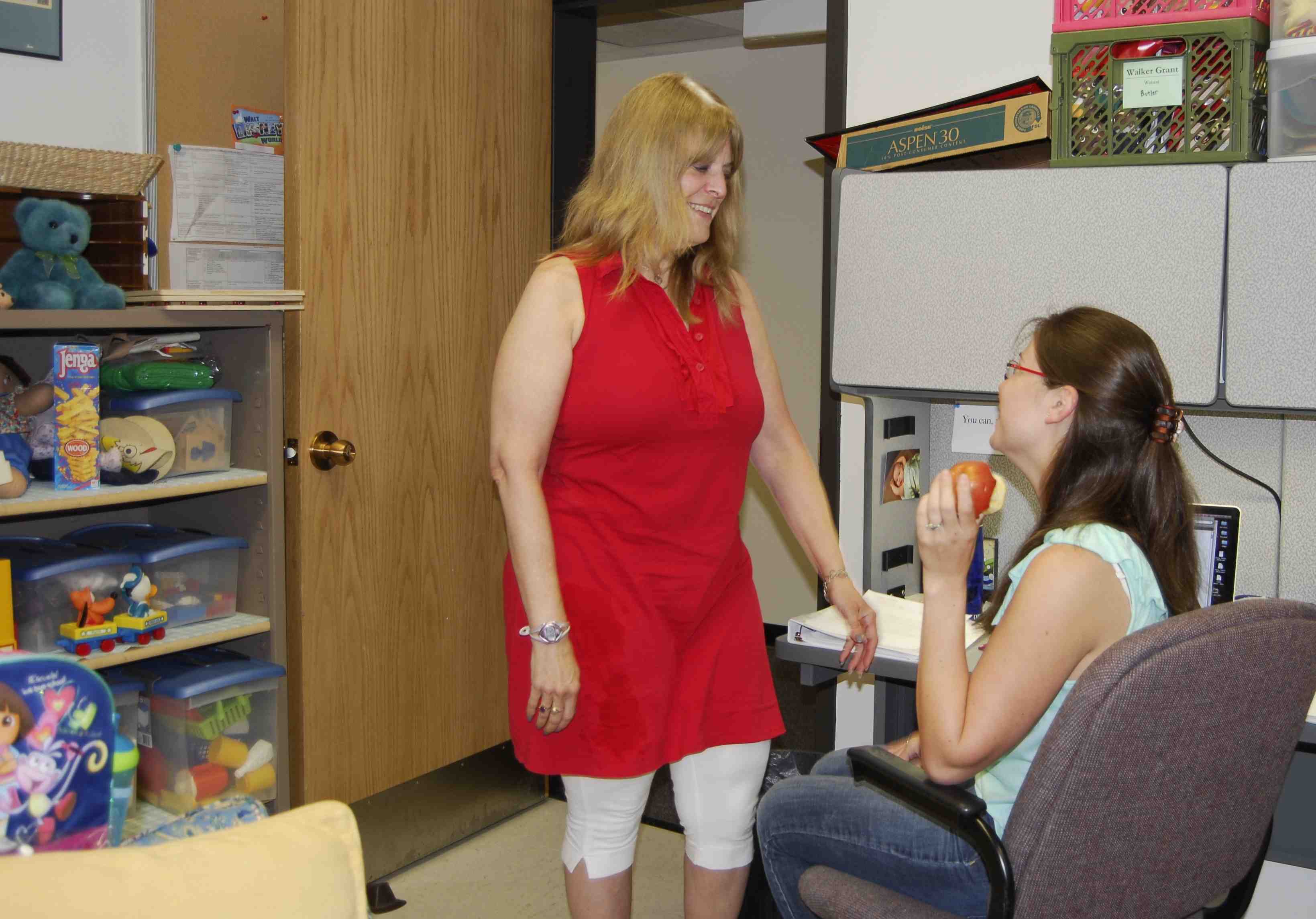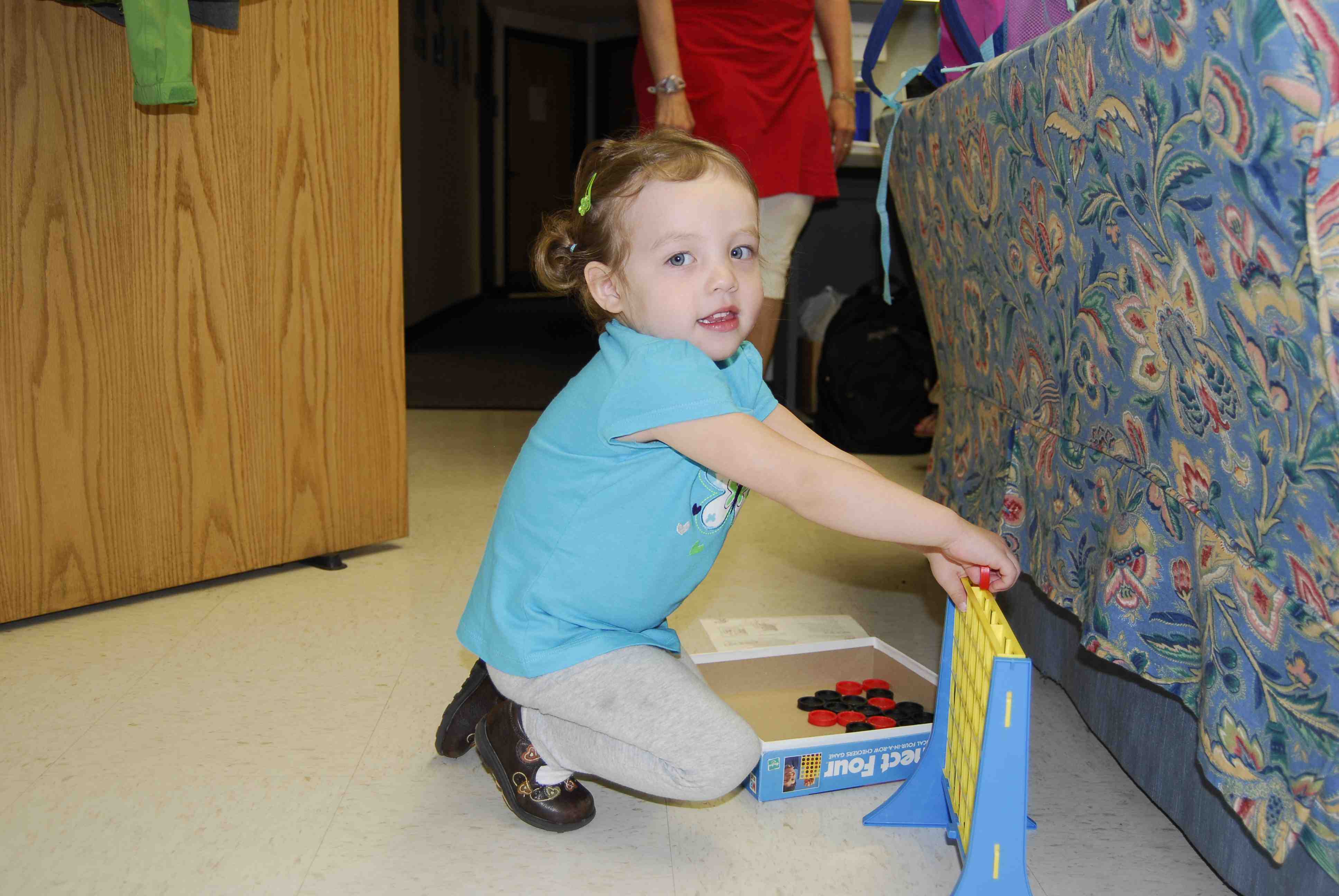George Mason University
Child Development Lab
Department of Psychology


General Questions for Parents
What does the GMU Child Development Lab study?
Our lab studies young children's development of the social-emotional expressions, skills, and knowledge needed to succeed in family, peer, and school contexts. Within these contexts, we specifically highlight the development of emotional competence, which is defined as children's expression, mangagement, and knowledge of emotions. Children's development of emotional competence is impacted by their interactions with family, teachers, and peers and it is these processes that are of particular importance to our research. Our recent work centers on children’s development of emotional competence in the classroom. Read more about this area by downloading this informational brochure about emotions in the classroom.
Why is emotional competence important?
We believe that emotions are at the heart of the interactions that children have with their world, especially with others. Our research, as well as others, has demonstrated important connections between the facets of emotional competence and children's current and later success in interacting with parents, siblings, teachers, and peers, laying the foundation for the bonds that are important throughout development. Importantly, studies are also beginning to show that children who are socially and emotionally prepared to enter kindergarten do better in school.
How do you study emotions in preschoolers?
Our lab uses a variety of assessments to triangulate the different components of emotional competence within the context of what children experience. Some of our tools center on observing families in the home or on observing children's interactions with teachers and peers at school. Other assessments we use are one-on-one and designed to feel like games. Example of these assessments can be found here. We also collaborate with other researchers. We are pleased to have worked with Dr. Tim Curby, who specializes in the Classroom Assessment Scoring System, on this project.
Are parents important for children's social and emotional development?
Absolutely! Our past research has shown that children learn about emotions and how to manage and express emotions from their parents and other family members. Much of the work in this laboratory has contributed to this important information about parents and their children, much of which can be accessed via our publications page. One of our most recent reserach projects, TASSEL, explores how teachers are important for children's development of emotional competence.
-
Ahn, H. J. (2005). Teachers' Discussions of Emotion in Child Care Centers. Early Childhood Education Journal, v32(n4), p237.
-
Ahn, H., & Stifter, C. (2006). Child Care Teachers' Response to Children's Emotional Expression. Early Education and Development, 17(2), 253-270.
-
Brackett, M. A., & Caruso, D. R. (2006). The emotionally intelligent teacher. Ann Arbor, MI:Quest Education.
-
Hyson, M. (2002). Emotional Development and School Readiness. Professional Development. Young Children, 57(6), 76-78
-
Denham, S. A., Bassett, H. H., & Zinsser, K. (2012). Early Childhood Teachers as Socializers of Young Children's Emotional Competence. . Early Childood Education Journal, 40(6), 137-143
-
Hyson, M. C. (1994). The emotional development of young children: Building an emotion-centered curriculum. New York, NY: Teachers College Press.
I would like to learn more. What resources are available?
Scholarly articles:
Books:
Websites: